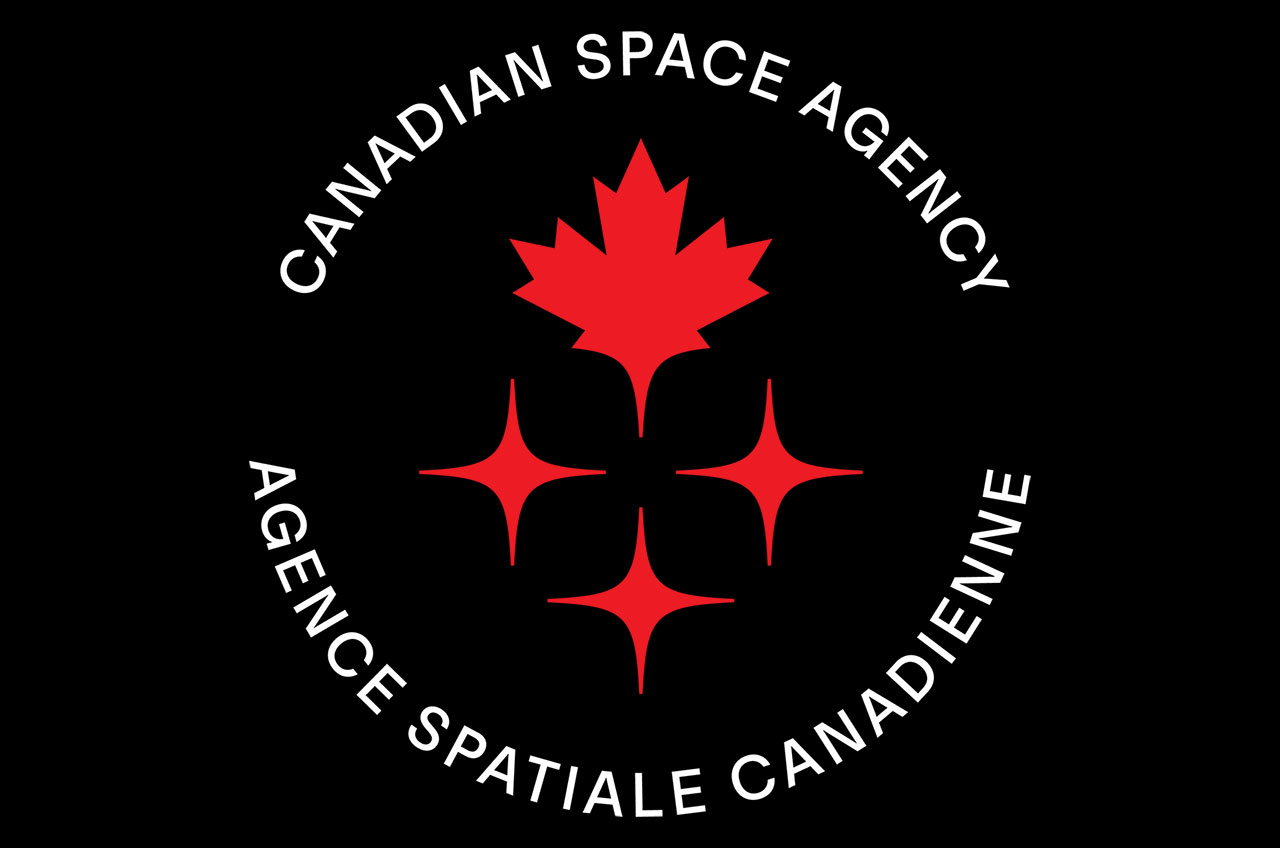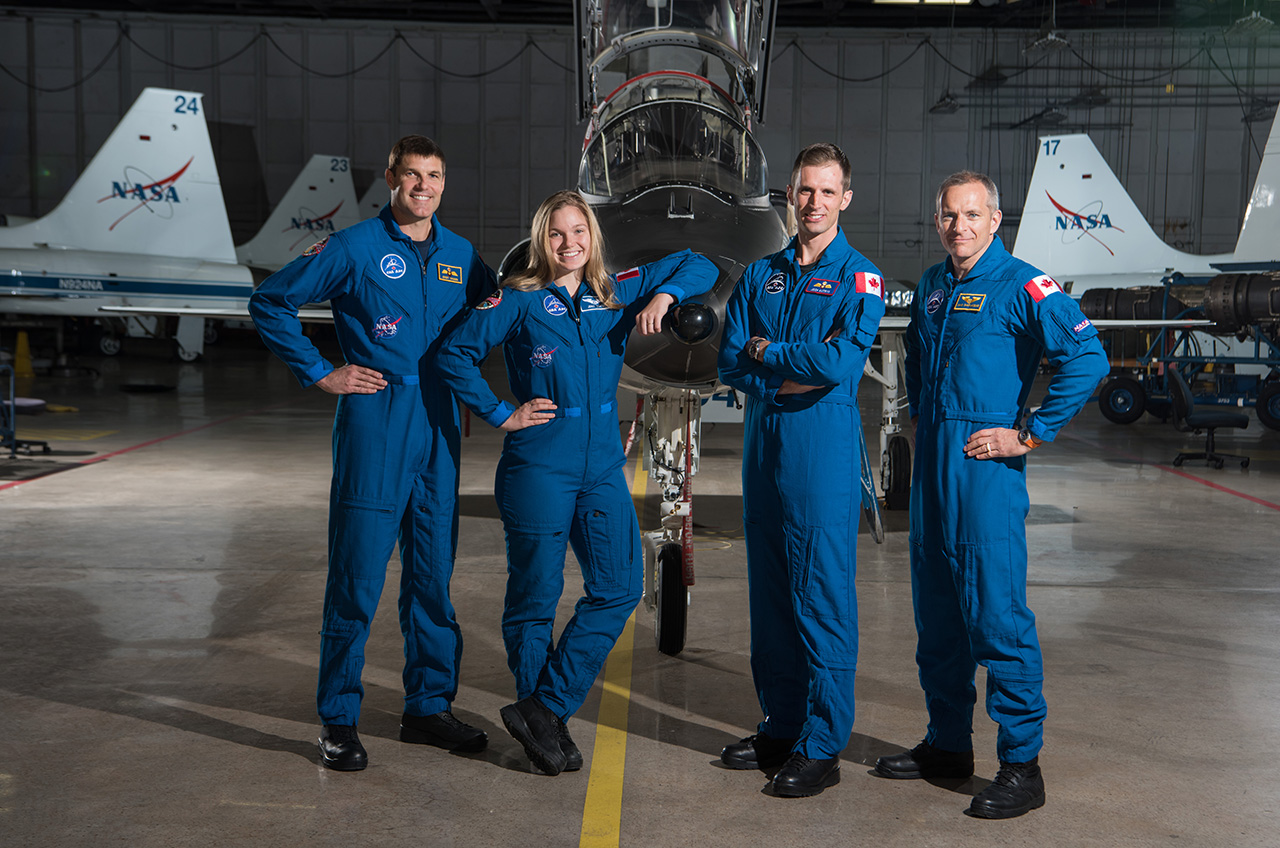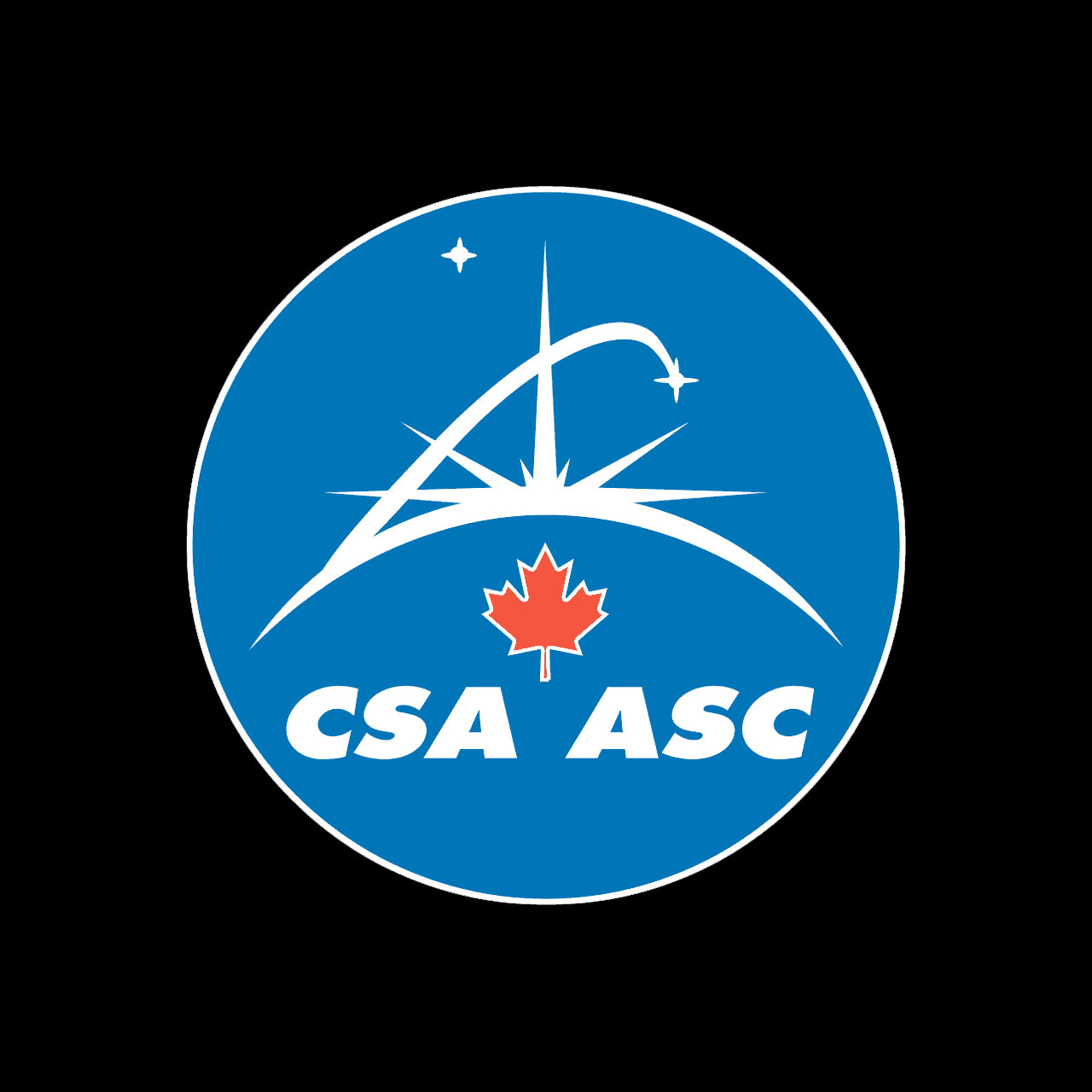Maple leaf to the moon: Canadian Space Agency debuts new logo
It symbolizes 'daring invention and our sights set on the future, ready to push the boundaries of ingenuity and innovation.'

When the first Canadian astronaut to launch to the moon lifts off with NASA's next Artemis mission, he or she will do so wearing a new symbol of Canada's efforts in space.
The Canadian Space Agency (CSA) on Thursday (March 16) debuted a new logo to represent the growing role of the country's space program.
"An exciting era of space exploration is unfolding before us, and the CSA seeks to enter this new chapter with a modern identifying symbol," read a statement from the agency. "The Canadian Space Agency is modernizing its visual identity with a new simplified logo."
Related: Everything you need to know about NASA's Artemis program
The new mark features two main elements.
At top is the maple leaf, Canada's national emblem. According to CSA, the leaf "generates pride and a sense of belonging," in addition to its association with the country, as is known all around the world.
The maple leaf also gives the impression of taking flight.
Get the Space.com Newsletter
Breaking space news, the latest updates on rocket launches, skywatching events and more!
It symbolizes "daring invention and our sights set on the future, ready to push the boundaries of ingenuity and innovation," CSA's description read.
Trailing the maple leaf are three stars, which at its most basic interpretation are a representation of space. The stars are also meant to convey brilliance, intelligence and expertise, as well as the strength of the community, which includes all those involved in Canada's space program, including industry, scientists, academia and STEM (science, technology, engineering and mathematics) organizations.
A circular version of the logo also includes the full, spelled-out name of the agency wrapping around the top in English and in French ("Agence Spatiale Canadienne") at the bottom.

In 2019, CSA entered into a new agreement to help develop the Gateway, a human-tended research and logistics platform in lunar orbit. For its part, CSA and its industry partners are developing a new robotic system that will assist in repairs and maintaining the moon's first mini space station.
Referred to as "Canadarm3," the new arm builds off Canada's legacy of providing the original Canadarm for the space shuttle and Canadarm2, which is still in use at the International Space Station.
CSA is also developing the country's first robotic lunar rover, which in collaboration with NASA will help in the international search for water ice in the lunar soil.
In return for these contributions, NASA reserved a seat for a CSA astronaut on its first crewed mission to fly around the moon in more than 50 years. The identities of the Artemis 2 crew members will be announced on April 3 during an event held at NASA's Ellington Field, near Johnson Space Center in Houston.
"Just over-the-moon proud to see Canada as the one partner flying on this historic first mission with NASA," Joshua Kurtyk, one of CSA's four active astronauts who are eligible for the seat on Artemis 2, wrote in a social media post. "Our unique innovative, exploratory and pioneering spirit at work, and a direct link to Canada's future prosperity and security."

CSA's new logo, which was developed for the space agency by the Canadian creative firm LG2, replaces an earlier design that was first introduced on Nov. 4, 1996. The now-retired mark also featured a maple leaf, but instead of leading off the emblem, it was positioned below a stylized horizon with the sun's rays extending from behind and a vector extending to a four-pointed star (of the same style on the new logo). Instead of its full name, the Canadian Space Agency's English and French acronyms ("CSA" and "ASC") appeared in italic below the maple leaf.
Follow collectSPACE.com on Facebook and on Twitter at @collectSPACE. Copyright 2023 collectSPACE.com. All rights reserved.
Join our Space Forums to keep talking space on the latest missions, night sky and more! And if you have a news tip, correction or comment, let us know at: community@space.com.

Robert Pearlman is a space historian, journalist and the founder and editor of collectSPACE.com, a daily news publication and community devoted to space history with a particular focus on how and where space exploration intersects with pop culture. Pearlman is also a contributing writer for Space.com and co-author of "Space Stations: The Art, Science, and Reality of Working in Space” published by Smithsonian Books in 2018.In 2009, he was inducted into the U.S. Space Camp Hall of Fame in Huntsville, Alabama. In 2021, he was honored by the American Astronautical Society with the Ordway Award for Sustained Excellence in Spaceflight History. In 2023, the National Space Club Florida Committee recognized Pearlman with the Kolcum News and Communications Award for excellence in telling the space story along the Space Coast and throughout the world.










